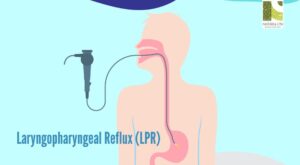Understanding Perimenopause and Menopause: A Complete Guide

Menopause isn’t a single moment—it’s a journey. It doesn’t happen overnight and affects every woman differently. For many, the transition begins with perimenopause, a phase that may span several years before periods stop altogether. Understanding this change—physically, emotionally, and hormonally—is key to navigating it with awareness and confidence.
In this guide, we break down what every woman (and their loved ones) needs to know about perimenopause and menopause, backed by scientific evidence and expert insight.
What is Perimenopause?
Perimenopause is the transitional phase leading up to menopause. It typically begins in a woman’s 40s, but can start as early as the mid-30s. During this time, the ovaries gradually produce less estrogen, causing menstrual cycles to become irregular.
Key Characteristics of Perimenopause:
- Irregular periods (shorter or longer cycles)
- Heavier or lighter bleeding than usual
- Hot flashes and night sweats
- Sleep disturbances
- Mood swings or increased anxiety
- Vaginal dryness or discomfort during intercourse
- Reduced fertility
- Changes in libido
Perimenopause may last for 4–10 years.
What is Menopause?
Menopause is defined as the point in time when a woman hasn’t had a menstrual period for 12 consecutive months, without pregnancy or another medical reason. The average age of natural menopause is around 51 years.
This marks the end of a woman’s reproductive years.
What Causes These Changes?
These changes stem primarily from a decline in the hormones estrogen and progesterone, which regulate ovulation and menstruation. The fluctuation and eventual reduction of these hormones impact multiple systems in the body, including:
- Thermoregulation (causing hot flashes)
- Sleep patterns
- Mood and cognitive function
- Bone density
- Vaginal and urinary health
Common Symptoms During Perimenopause & Menopause
- Hot Flashes & Night Sweats
Sudden waves of heat, often accompanied by sweating and flushed skin. - Insomnia or Disturbed Sleep
Hormonal changes can interfere with deep sleep and circadian rhythms. - Mood Changes
Increased irritability, anxiety, or depression due to fluctuating estrogen levels. - Cognitive Changes
“Brain fog,” forgetfulness, and difficulty concentrating. - Vaginal Dryness
Leads to discomfort during intercourse and increased risk of UTIs. - Weight Gain
Especially around the abdomen, due to metabolic slowdown. - Hair Thinning & Skin Dryness
- Loss of Breast Fullness
- Reduced Libido
Emotional & Mental Health in Midlife
While these changes are physical, they deeply impact mental well-being. Many women report feelings of sadness, loneliness, or identity loss during this stage. It is important to distinguish normal hormonal mood swings from conditions like clinical depression or anxiety disorders, which may require treatment.
When to See a Doctor
You should consult a doctor if:
- Your periods are extremely heavy or very frequent
- You bleed after menopause
- You experience severe mood swings or insomnia
- Hot flashes are interfering with your daily life
- You’re unsure if symptoms are related to menopause or another condition
Coping & Treatment Options
1. Lifestyle Adjustments
- Regular Exercise: Helps manage weight, mood, and sleep
- Balanced Diet: Focus on calcium, vitamin D, and phytoestrogens
- Mindfulness or Yoga: For mental clarity and emotional regulation
- Good Sleep Hygiene: Avoid caffeine/alcohol before bed
2. Hormone Replacement Therapy (HRT)
Prescribed for women with severe symptoms, HRT replaces estrogen/progesterone. It can:
- Reduce hot flashes
- Improve bone health
- Improve vaginal lubrication
HRT isn’t suitable for everyone—especially those with a history of breast cancer or blood clots.
3. Non-Hormonal Medications
- Antidepressants (for mood and hot flashes)
- Gabapentin (for night sweats)
- Lubricants & vaginal estrogen (for vaginal dryness)
4. Alternative Therapies
- Acupuncture
- Ayurvedic formulations (under medical guidance)
- Herbal supplements like black cohosh or red clover (limited evidence, use with caution)
Long-Term Health Considerations After Menopaus
After menopause, estrogen levels remain low, increasing the risk of:
- Osteoporosis (bone thinning)
- Heart disease
- Urinary incontinence
- Memory decline
Preventive Measures:
- Bone density scans
- Annual cardiovascular checkups
- Pelvic floor exercises
Perimenopause & Menopause in Indian Context
In India, menopause often occurs slightly earlier, around age 46–48. Cultural taboos around discussing menstruation or sexuality can lead to lack of awareness and late diagnosis.
Empowering women with the right knowledge and encouraging open conversations can help break this silence and provide timely care.
Perimenopause and menopause are natural, not pathological. But the physical, emotional, and psychological impacts are real and manageable. Awareness, support, and the right medical guidance can make this journey smoother and more empowering.
At nellikka.life, we stand by every woman through her changing seasons—because your health is your power.
Reference :





